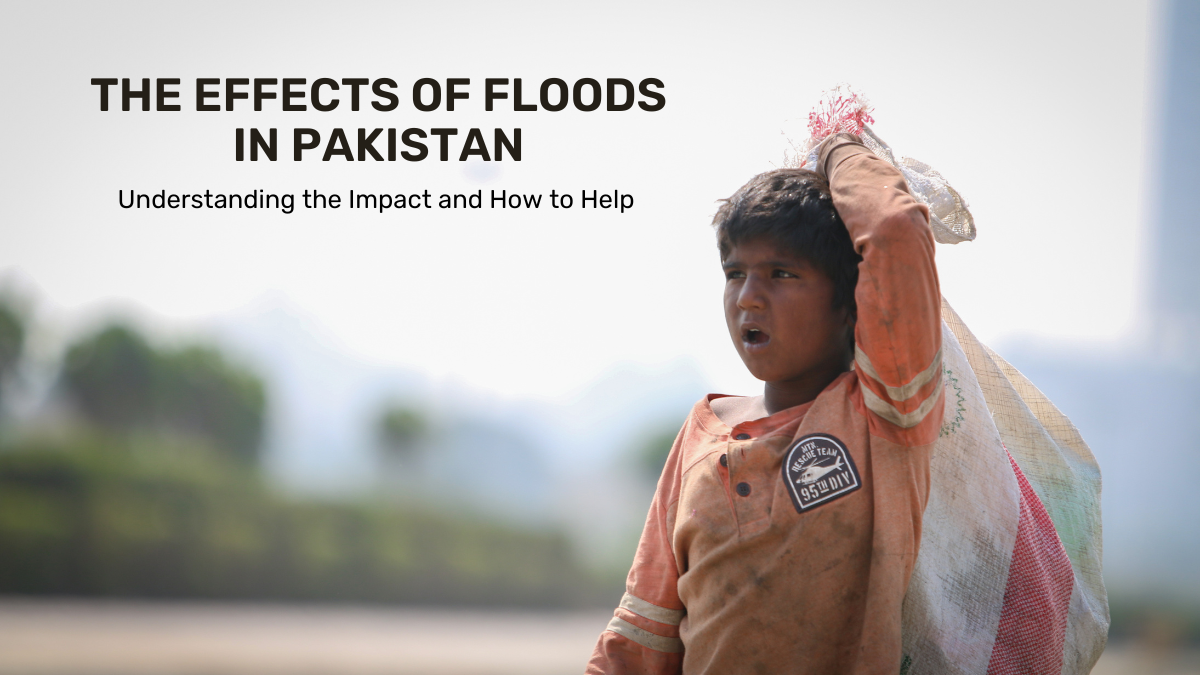Floods in Pakistan are a common occurrence, and have severe consequences for the population and the country’s economy. The monsoon season, which runs from July to September, causes heavy rainfall and often results in devastating floods.
Pakistan flood appeal by Al-Wahab Foundation existed to help the flood victims as these floods not only cause damage to infrastructure and property, but also have a severe impact on the lives of the people living in affected areas. In this blog, we will explore the effects of floods in Pakistan, and discuss ways in which we can help those affected.
The causes of floods in Pakistan
Floods in Pakistan are caused by a combination of factors. The monsoon season, which brings heavy rainfall, is a major cause of floods. The country’s topography also plays a role, as much of Pakistan is located on a flood plain, making it vulnerable to flooding. Climate change is also a contributing factor, as it causes extreme weather conditions and heavy rainfall.
Another major cause of floods in Pakistan is poor management of water resources. The country lacks an efficient system for managing and storing water, which leads to flooding during the monsoon season. Additionally, unplanned urbanisation and deforestation have led to the loss of natural habitats that once absorbed and retained water, thus increasing the risk of floods.
The impact of floods on the population
The impact of floods on the population of Pakistan is severe. Floods cause damage to homes, infrastructure, and crops, leaving many people without shelter or means of livelihood. Floods also cause displacement, as people are forced to flee their homes in search of safety.
Floods also have a significant impact on the health of the population. The contaminated water and lack of sanitation facilities can lead to the spread of water-borne diseases such as cholera and dysentery. Additionally, the destruction of homes and displacement can lead to mental health issues, such as anxiety and depression.
The Impact on the Economy
Floods also have a significant impact on the economy of Pakistan. The damage to infrastructure and property, as well as the loss of crops, can lead to a decline in economic activity. Additionally, floods can disrupt trade and transportation, leading to a decrease in business and commerce.
The cost of rebuilding and recovery can also be significant. This can put a strain on the government’s finances and divert resources away from other important areas such as education and healthcare. (Pro Tip: Formulas for Best Moving)
Ways to Help
There are many ways in which we can help those affected by floods in Pakistan. One way is to donate money to organisations that provide assistance to those affected. These organisations have the resources and expertise to provide aid in the form of food, shelter, and medical assistance.
Another way to help is to donate goods such as clothes, blankets, and non-perishable food items. These items can provide immediate assistance to those affected by floods.
Volunteering is also an excellent way to help. Many organisations rely on the support of volunteers to assist with the distribution of aid and to provide additional support to those affected by floods.
Advocacy is also important. By raising awareness about the issue of floods in Pakistan and the impact they have on the population, we can put pressure on the government and other organisations to take action.
How to Prevent Future Floods
Prevention is key to reducing the impact of floods in Pakistan. There are several ways in which we can prevent future floods. One way is by improving the management of water resources. This can be done by constructing dams and other water storage facilities, and by implementing efficient irrigation systems.
Another way to prevent future floods is by promoting sustainable land use practices. This includes measures such as afforestation, conservation of wetlands, and promoting sustainable agriculture. By protecting and preserving natural habitats that absorb and retain water, we can reduce the risk of floods.
Urban planning also plays a crucial role in preventing future floods. Unplanned urbanisation and construction in flood-prone areas increase the risk of floods. By implementing proper urban planning and zoning laws, we can reduce the risk of flooding in urban areas.
Climate change adaptation is also essential. As the climate changes, we need to adapt to the increasing frequency and severity of floods. This can be done by building infrastructure that is flood-resistant, and by developing early warning systems that can help to minimise the impact of floods.
Conclusion:
Floods in Pakistan have severe consequences for the population and the economy. The impact on the population is severe, with many people losing their homes, livelihoods and facing health risks. The cost of rebuilding and recovery can also be significant, putting a strain on the government’s finances and diverting resources away from other important areas.
However, by understanding the causes and effects of floods, we can take steps to help those affected, and also prevent future floods. This can be done through donations, volunteering, advocacy, and promoting sustainable practices. By working together, we can help to mitigate the impact of floods in Pakistan and build a more resilient future.




